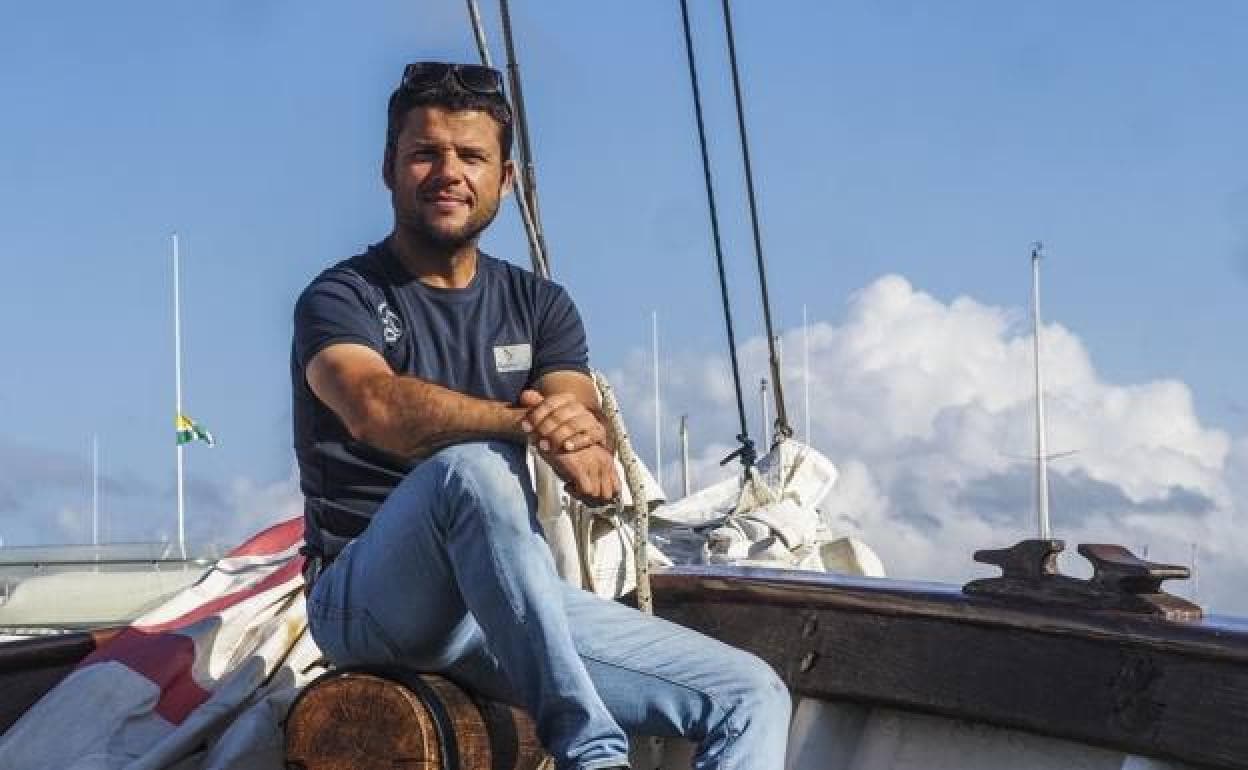'In one hour we removed more than 40 kilos of rubbish from a beach'
earth matters ·
Malaga-born explorer and environmentalist Nacho Dean is sailing around the Spanish coast to map plastic in its marine ecosystemsJosé A. González
Monday, 20 February 2023
"Dear finder, please write to me, I'd love to hear from you." These are the lines that a young British woman wrote on a piece of paper that she put in a bottle and threw into the sea at the end of the 1990s. The bottle was found two decades later and 500 kilometres away. Sadly, this is a journey made by thousands of plastic objects in our seas and oceans and it is estimated that each piece of plastic will take 500 million years to biodegrade.
In fact, it is estimated that more than five billion pieces of plastic have ended up in the sea in recent years. "There are containers, bottles, loose pieces," says Nacho Dean, an environmentalist and explorer from Malaga, who in September 2022 set sail from Hendaye in France to follow the trail of plastic off the Spanish coast.
More plastic than fish
The journey is taking him across the Cantabrian and the Mediterranean seas and the Atlantic Ocean, to evaluate the situation on the almost 8,000 kilometres of coastline: "It's bad," he warns. "As the United Nations says, if we carry on like this, by 2050 there will be more plastic than fish in the sea.”
"On previous expeditions I have seen the large amount of plastic and marine litter on other coastlines," he says. "I decided I had to do something and I had to do it in our own marine ecosystems," he adds.
The Blue Expedition, as this latest quest is called, has recently stopped in the Canary Islands on its third stage before heading back to the mainland and the country’s east coast. "At the moment, we have data from the Cantabrian and Atlantic coasts, but it is too early to draw scientific conclusions," says Dean.
120 tonnes of plastic per day
According to data from a number of environmental NGOs, Spain releases around 120 tonnes of plastic waste per day into the sea and according to reports by the Libera project, plastic is the main waste matter in all environments in Spain.
He adds that the type of plastic varies from place to place and is often bottles, caps and containers, although a lot of the waste comes from the country’s fishing industry: "In the Bay of Biscay we collected a lot of fishing items. A very high percentage of marine pollution comes from fishing.”
According to a report by the Dutch foundation Changing Markets, cleaning up plastic waste on Spanish coasts costs the public 700 million euros a year. The same document concludes that between 13,000 and 80,000 euros are spent on cleaning each kilometre of coastline every year. Drinking containers alone account for between 285 million and 500 million euros per year.
Blue Expedition
Dean's 'Blue Expedition' has brought together around 200 volunteers to Spanish beaches. "We don't want to replace the work of the local councils; what we do is to make people aware of the problem by cleaning up," he says. "Obviously, clean beaches are our objective, but what we want to do is categorise and see which objects are the most common.”
Sampling lasts just 60 or 90 minutes and is “just the tip of the iceberg of the problem". In that short time period volunteers "don't dig or dig holes in the beaches", says Dean. “They just pick up what's on the sand.” This has allowed them to collect kilos of plastic and some that have travelled from other places on the planet. "We removed more than 40 kilos of rubbish in an hour from one beach," says Dean.
The most common litter they come across is cigarette butts. "We see cigarette butts from other parts of the world," says Dean. "It could be because of tourism. However, we have found that ocean currents play a very important role in plastic pollution.”
The toilet is not a rubbish bin
It is a journey that has taken microplastics and nanoplastics to the most remote places on the planet, including the two poles. "It starts on our beaches or in our homes," warns the adventurer. "We have found cotton buds in the sea; people don't realise that the toilet is not a rubbish bin and what we throw away ends up in the ocean," he points out.
According to the Liberia project, 96 per cent of Spaniards believe that the beaches and the sea are the most polluted environment in the country. In 2022, the OceanoScientific Mediterranean Pollutants 2020 expedition revealed that the Mediterranean on Spain’s east coast was above the European average for chemical pollution.
During his trip, Dean is taking samples at different points around the Spanish coastline to visualise the quality of these waters. "It's early days; the University of Cadiz will give us the results later this year," he says.
